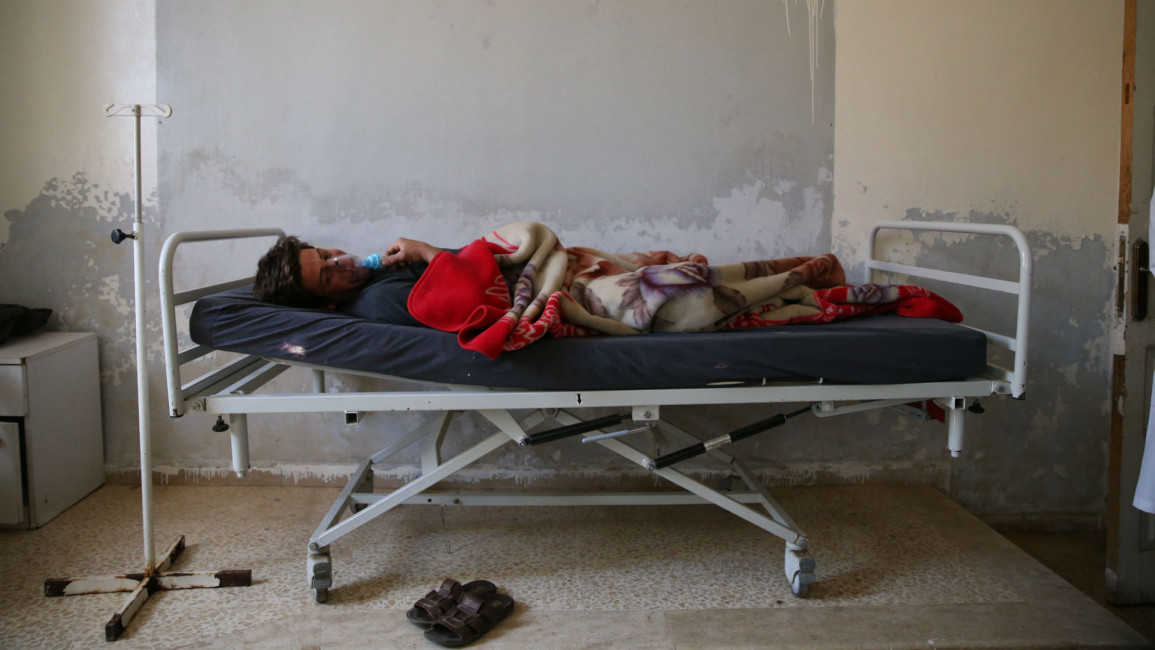UN: Sarin gas found in Khan Sheikhoun probe samples
An international chemical weapons watchdog has found traces of sarin gas in samples from the April 4 attack on the northern Syrian town of Khan Sheikhoun, a UN official said Tuesday.
UN disarmament head Izumi Nakamitsu told the United Nations Security Council that the Organization for the Prohibition of Chemical Weapons (OPCW) found "sarin or a sarin-lie substance" in samples taken from the area of the attack, and now wants to visit Khan Sheikhoun to further investigate.
The OPCW conducted interviews, witnessed the collection of biomedical samples from the Khan Sheikhoun attack and analysed biological-environmental samples from dead animals near the impact point. A team also witnessed the extraction of biomedical samples from three victims of the attack.
While traces of sarin were found, Nakamitsu stressed that all evidence is still currently being analysed and no conclusions are final.
The OPCW also submitted a report into the use of chemical weapons near Um Hosh in the Aleppo region on Sept. 16, which indicated the use of "sulfur mustard."
The team was not able to visit the site of the attack but reviewed blood samples from two female casualties in the incident which proved they had been exposed to the gas. A mortar shell handed over to the OPCW by Russia also had traces of the substance.
The fact-finding team are not mandated to determine who is responsible for the attacks, which is left to a joint UN-OPCW body known as JIM.
Last year, the body found that the Syrian government used chlorine gas in three attacks while the Islamic State group used mustard gas during attacks in 2014 and 2015.
The two latest reports have been sent to JIM and the Security Council will be informed of all updates.
Commenting on the findings, Nakamitsu said the use of chemical weapons by any actor in the Syrian war is "indefensible" and "cannot be viewed as anything other than a violation of the most basic international law."
Syrian President Bashar al-Assad insists his regime handed over all chemical weapons stockpiles in 2013, under a deal brokered by the regime's key ally, Russia, to avoid threatened US military action.
The OPCW and national intelligence services doubt, however, whether Assad fully declared everything in the Syrian chemical weapon program.
Israeli military officials have even claimed that Assad still possesses over three tonnes of chemical weapons.
Khan Sheikoun saw a horrifying sarin gas attack on 4 April that left over a hundred civilians dead, leading to retaliatory US cruise missile strikes on a Syrian airbase which was said to be responsible for the attack.
Despite the evidence stacked up against the Syrian regime, Assad has long denied responsibility for the attack, claiming images and video footage of the incident were all "fake news".

![The brutal assault on Khan Younis has killed dozens and displaced thousands more [Getty]](/sites/default/files/styles/image_330x185/public/2024-07/GettyImages-2162526709.jpg?h=d3eda8cf&itok=n5N-o8p5)
![Members of the Algerian delegation threw roses into the Seine [Getty]](/sites/default/files/styles/image_330x185/public/2024-07/GettyImages-2162980872.jpg?h=199d8c1f&itok=h_3o_TOL)
